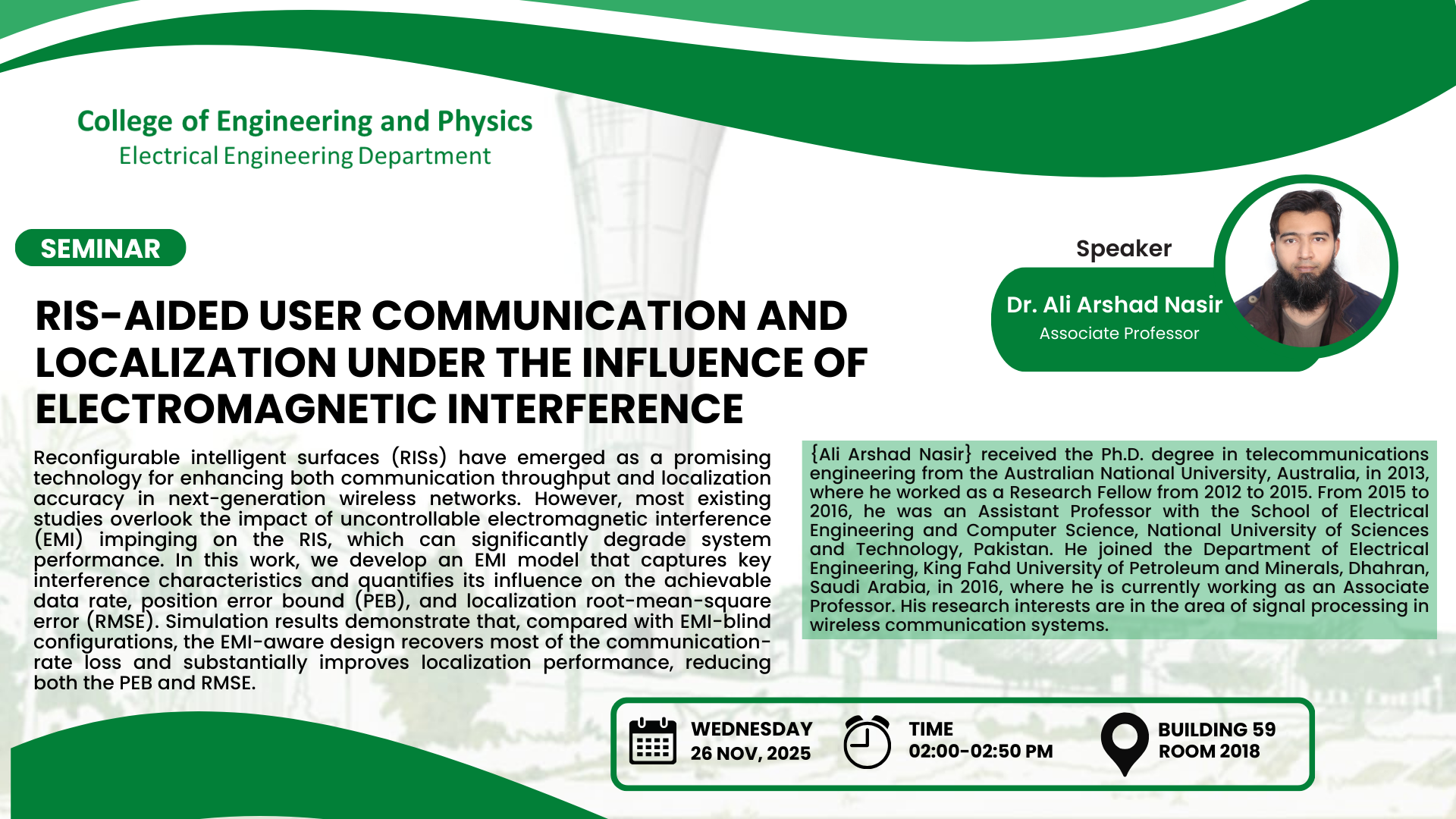RIS-Aided User Communication and Localization under the Influence of Electromagnetic Interference
Reconfigurable intelligent surfaces (RISs) have emerged as a promising technology for enhancing both communication throughput and localization accuracy in next-generation wireless networks. However, most existing studies overlook the impact of uncontrollable electromagnetic interference (EMI) impinging on the RIS, which can significantly degrade system performance. In this work, we develop an EMI model that captures key interference characteristics and quantifies its influence on the achievable data rate, position error bound (PEB), and localization root-mean-square error (RMSE). Simulation results demonstrate that, compared with EMI-blind configurations, the EMI-aware design recovers most of the communication-rate loss and substantially improves localization performance, reducing both the PEB and RMSE.

-
Building 59-2018
-
26 Nov, 2025
-
02:00 PM - 02:50 PM